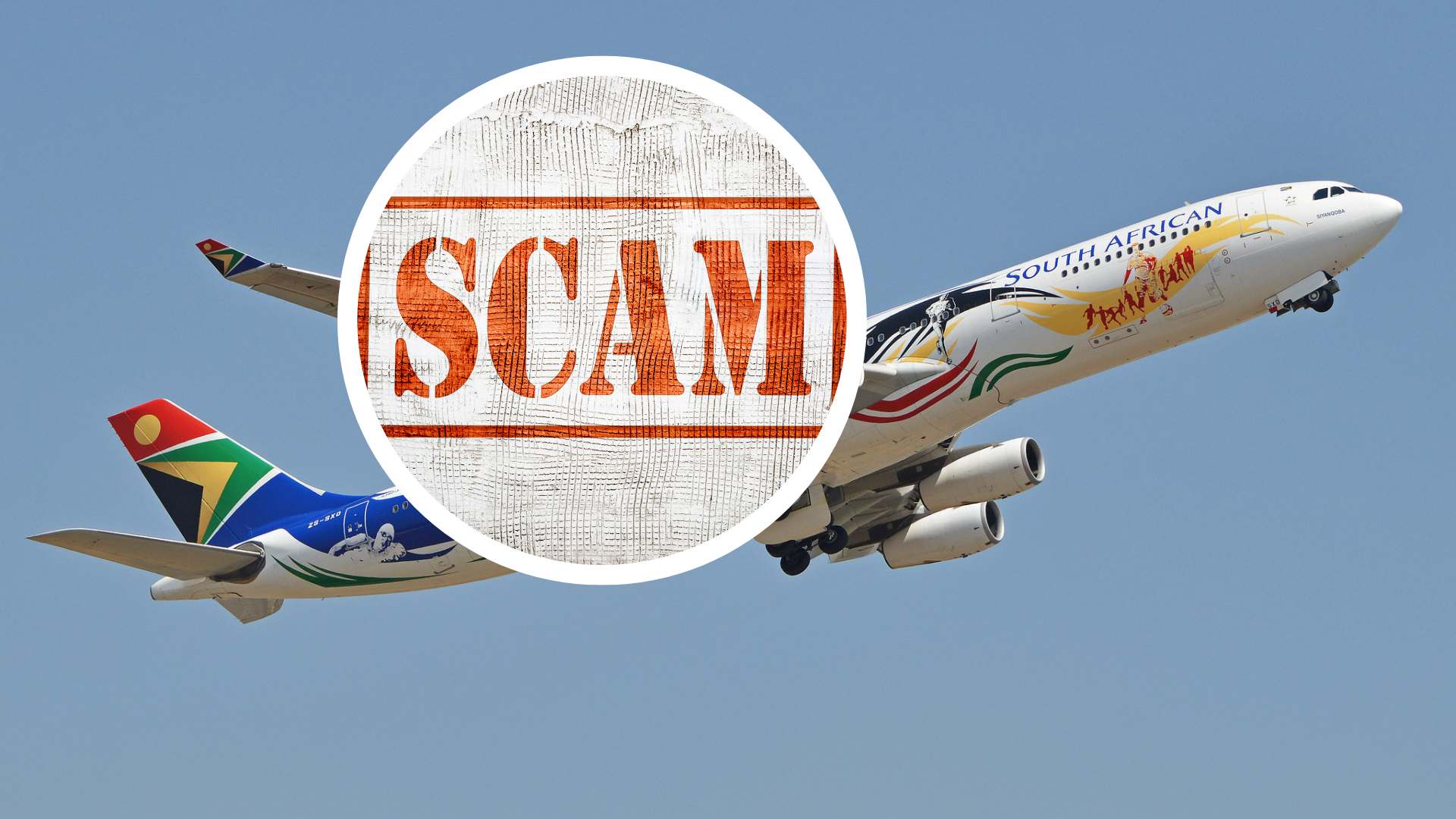
SAA warns of yet another discounted ticket scam on social media
It seems there is yet ANOTHER South African Airways (SAA) ticket scam doing the rounds on social media. Here’s are the details…

SAA alerts social media users of ticket scam
It seems South African Airways (SAA) is the victim, once again, of a social media ticket scam being distributed on WhatsApp and Facebook.
The airline took to its X account on 7 October, to issue a notice to the public to be aware of a 90% discounted ticket offer scam via WhatsApp and Facebook.
“Beware of a 90% discounted ticket offer scam via WhatsApp and Facebook. We have been alerted to a WhatsApp and Facebook scam offering discounted tickets on SAA along with payment links. Please be aware that these offers are not associated with our airline. For your safety and security, always verify information through our official channels.” the airline said.
Continuous scam
This is actually the third time in the past few months that SAA has issued notices of scams on social media.
On 26 August the airline issued a similar notice to the public to be aware of a 90% discounted ticket offer scam via WhatsApp and Facebook.
“We have been alerted to a WhatsApp and Facebook scam offering discounted tickets on SAA along with payment links. Please be aware that these offers are not associated with our airline. For your safety and security, always verify information through our official channels. If you need assistance or clarification, please contact us directly | +27 11 978 1111.” the airline warned.
This came just days after they had to put out another scam notice, this time for fake deals being advertised on WhatsApp.
How can you tell a social media deal is a scam?
Here are five tips to spot a social media scam:
- Too good to be true: If the deal seems unrealistically cheap or promises huge rewards for little effort, it’s likely a scam.
- Urgent pressure: Scammers push you to act quickly, using limited-time offers or countdowns to make you feel rushed.
- New or unverified accounts: Scammers often use newly created social media accounts with few followers or no verification.
- Weird payment methods: If they ask for payment through gift cards, wire transfers, or other untraceable methods, avoid it.
- Suspicious links or personal info requests: Be cautious if you’re sent strange links or asked for personal or financial details without a secure method.